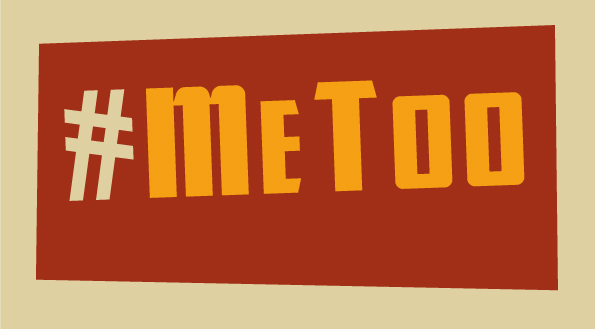Where are the voices of LGBT+ survivors?
The growing number of voices speaking out against sexual assault in the film and entertainment industry mark a seismic shift in cultural attitudes towards sexual violence. Finally we are seeing accusations of sexual assault treated with the severity that should have been the norm decades before; with recurrent perpetrators like Harvey Weinstein and James Toback being removed from their thrones of abuse we might consider much of the hard work already done. But the reality is that for every voice speaking out, there’s another still silenced by the pressures of stigma, fear and shame. Among those many muted victims are members of the queer and gay community, upon whom the weight of social stigmatisation can fall heaviest.
Of the survivors who have been empowered to speak out, the vast majority are cis-het women, alongside several cis-het men (Terry Crews, James Van Der Beck). And yet, Anthony Rapp, the victim of Kevin Spacey’s unwanted sexual advances at the raw age of 14, is one of a notably small chorus of queer and trans voices confident enough to articulate similar experiences of assault as their cisgendered counterparts. Statistically transgender people are at greater risk of sexual violence than cis women[1], bisexual men and women experience assault more regularly than their straight compatriots, lesbians are almost 10% more likely to experience rape than straight women, and gay men face double the risk of sexual violence than heterosexual men[2]. It would be fair to assume that these figures will also be reflected in the sexual crimes of the film and entertainment industry. Why is it, then, that so few of the LGBTQ community feel empowered to speak up alongside their cis-het colleagues?
According to Andria Wilson, executive director of Toronto and Ottawa’s Inside Out Film Festival, “As LGBTQ people, we face additional barriers and oppressions…So in many ways that means these kind of offences are more common and less frequently reported.”[3] Included in those barriers is the double-pressure that queer and trans people might face in “coming out” simultaneously about their sexuality and about their experiences of sexual violence. Not only does that add to the difficulty of vocalising the abuse they’ve endured, it can also conflate those two experiences under the same feeling of trauma in a kind of reverse-effect of Spacey’s dual “confession”. On top of this issue is the perception of homosexuality and transgenderism as sexual deviances among certain societies, meaning, according to trans activist Ashlee Marie Preston, cisgender, white accusers “are a bit more protected by respectability politics than trans women of colour”[4].
Subtler still is the way in which the vocabulary used to delineate sexual violence excludes members of the queer and trans community. Typically, sexual assault is figured in terms of male aggression on women, whilst ‘rape’ specifically denotes sexual penetration. Such language leaves blanks when it comes to expressing, for example, instances of women-on-women violence. When we consider that it was only 2016 when Germany changed its rape laws so that victims of rape need not give evidence of self-defence[5] it’s hardly surprising if there’s a lack of trust in the legal and societal framework supposedly supporting survivors.
The gaps in that support network extend to the world of social media: whilst it is hugely encouraging to see so many women brave enough to participate in the “Me Too” campaign, it is also essential to recognise the narrowness of the vocabulary used to ignite the hashtag. The instruction for “women who have been sexually harassed or assaulted” to write a “Me Too” status erases the possibility that sexual assault might be something more complex than male-on-female sexual aggression. As the statistics referred to earlier suggest, trans and queer people face a heightened risk of sexual violence, and it is therefore vital that we are equipped with the legal, linguistic and societal support to match that risk. Without that, any claims to definitive progress feel blinkered by a heteronormative notion of what constitutes sexual violence, and who has the right to the “Me” in “Me Too”.
[1] https://sapac.umich.edu/files/sapac/SV%20Against%20Trans%20People_1_0.pdf
[2] http://www.transequality.org/sites/default/files/docs/usts/USTS%20Full%20Report%20-%20FINAL%201.6.17.pdf
[3] http://www.cbc.ca/news/entertainment/spacey-lgbt-react-power-vulnerable-1.4381878
[4] https://www.vice.com/en_us/article/qv34wb/we-bring-it-on-ourselves-the-myths-silencing-lgbtq-sexual-assault-victims
